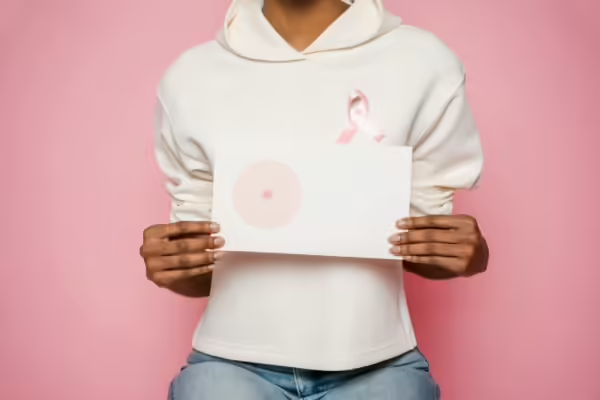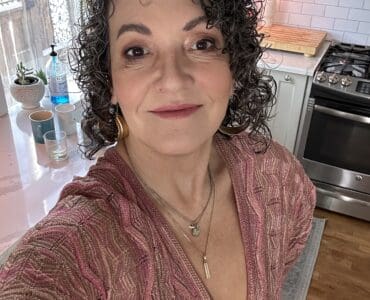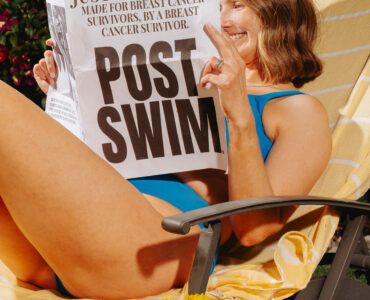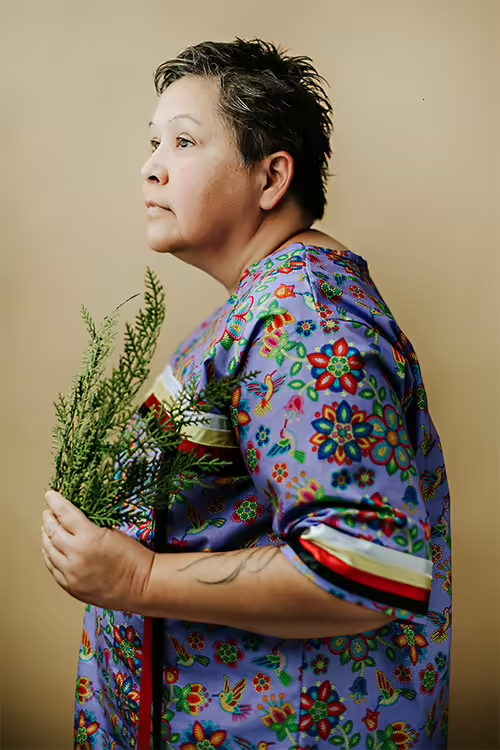Just like the progression through stages of grief. Everyone’s response to trauma is different. Some remain stuck, and struggle to move on. Others use that trauma as a catalyst for change. For the latter, it’s not called post-traumatic stress disorder (PTSD), but rather, post-traumatic stress growth (PTSG).
The phenomenon of PTSG was identified by psychologists Richard Tedeschi and Lawrence Calhoun in the 1990s. Based on their research, the pair described five categories of growth that occur over time: Survivors of trauma recognize and embrace new opportunities. They forge stronger relationships with loved ones as well as with victims who suffered in the same way. They cultivate inner strength through the knowledge that they have overcome tremendous hardship. They gain a deeper appreciation for life. And their relationship to religion and spirituality changes and evolves. This contributes to a personal process of change, that is deeply meaningful.
People who have experienced post-traumatic growth often report changes within the following five factors: appreciation of life; relating to others; personal strength; new possibilities; and spiritual, existential or philosophical change. Examples of PTG can be vast, ranging from writing books, finding God, and starting charities, to becoming an inspirational speaker or influencer.
It wasn’t until recently, that a colleague from the tech world introduced me to the concept of PTSG. Like most, I was familiar with the concept of PTSD. I was only at that point, about a year after completing my cancer treatment that I began to acknowledge that my experience was, indeed, trauma and my body and mind were responding accordingly. I felt, for lack of better terminology inflamed. It was as if I was physically carrying a burden around with me. I have since learned that this is a hormonal reaction, with my body producing excess cortisol to offset that fright and flight mode that overtakes you during diagnoses and treatment. I’m still working my way through this trauma reaction.
But as he spoke about the concept of PTSG, I also realized that this too, was a phenomenon I was experiencing, with impacts across every one of the known domains.
Spiritual change
Many trauma survivors report a shift in relating to the spiritual world. When you experience a cancer diagnosis you are immediately faced with the prospect of death from the disease. At the outset and in those first few weeks, when you haven’t yet spoken with a doctor, and don’t know what stage or what level of aggressiveness you are facing, the prospect of dying is a thought that goes through everyone’s mind. Amazingly, even we non-religious, non-church-going types find ourselves praying and seeking spiritual meaning in what has happened to us. I didn’t feel compelled to head to church I’ll admit. Pretty sure lightning would have struck had I tried. But I did find spiritual solace and guidance in the form of Stoicism and Angel Cards. I felt deeply connected to the Stoicism principle of Amor Fati, which is the Latin term for love your fate. I purchased an Amor Fati coin that I carried with me as a talisman, and chose to accept and embrace every experience, every outcome that cancer brought my way in the spirit of learning something from it. It helped keep me in the moment. I continue to live by this principle today. I was gifted the book The Daily Stoic by a friend, and incorporated a reading from it into my morning alongside a cup of tea. The Angel Cards were gifted to me by a friend the night before my surgery. I was entranced from the minute I opened the deck on surgery eve, and two cards popped out, the first was Angelic Protection and the second was Healing Energy. Just the messages this frightened woman needed to hear. These cards too became a part of my morning ritual and I return to them often when I feel in need of guidance.
Personal strength
You have no idea, and I mean zero concert about how truly tough and resilient you are until you go through a cancer diagnosis or other form of trauma. I will freely admit that the people I have met since my diagnosis are some of the most badass individuals on the planet and I wrote about my admiration and learning from them here. I saw and shared a meme recently that said something along the lines of “Don’t mess with a woman who has had breast cancer, because she will fuck you up.” That is the truth. This is particularly true for those of my friends who have been given a stage 4 diagnosis. They never give up, and courageously continue to forge forward, even though they may be in pain, or suffer significant side effects from the treatment options they are offered. They take the trips. They celebrate every occasion. They golf. They laugh often (sometimes at themselves). They coach and encourage others. Harking back to Stoicism and its second principle of Memento Mori, which means everyone dies. And that is the harsh truth. These folks know better than anyone that life is not to be wasted, not for a minute, an hour or a day.
A greater appreciation for life
Of course, all these things are deeply connected. As I mentioned, my form of spiritual awakening drew me to Stoicism and the principle of loving your fate. Having that glimpse at your own mortality, and unfortunately coming to know individuals who do die from a cancer diagnosis does drive you to appreciate life. Someone once asked me if I hear people on the cancer journey who have abandoned hope. I can’t speak for all, but it seems to me that it is quite the opposite reaction. Those I have met at every stage never give up, want to live their life fully and with purpose. Everyone has their moments where fear and despair creep in. However, they also pick themselves up and show remarkable resilience. They put their heads down and get the job done, no matter how difficult or painful a treatment and its side effects become. As an oncology nurse friend of mine told me, the one wild card in all of this, the thing that defeats every doctor’s prediction of an outcome is the human spirit and the will to live. I know not everyone’s story is a happy one or has a good ending, but we can make the most of whatever time we have, whether that is two days or 40+ years.
Improved relationships
I won’t lie, cancer can take its toll on your family unit and personal relationships. My husband and I deeply struggled after my diagnosis. I was the strong one, the family fixer. It was almost an insult to him and my children to see me vulnerable and unable to cope. It was a very difficult time and a test of the strength of our family unit. But our deep love for each other got us through and over the rocky bits and back to a new form of normal.
You also learn who your friends are. They are the ones who show up at your door with a dinner, even though they may not have seen you for several years. They sit with you and simply let you cry, while they hold your hand. They look after you after surgery, deal with the icky bits and see you looking your worst. You also find within the cancer and breast cancer community a kinship and new friends who are connected to you from a place of empathy. I have friends now that I speak with all the time, whom I’ve not yet met face to face, but we love each other with a depth of fierceness. We are there for each other when we are down, and when we are celebrating. We know each other’s families as if they were our own. We all like to say its the wost club but with the very best members.
I know for myself I say I love you all the time to my family, to my friends and now, probably for the first time to myself.
New possibilities
Whoo this one for me is where it gets really interesting. Some have said to me that my professional practice as a communicator and writer and story teller helped me prepare all my life for this new chapter called “life after cancer.” In the spirit of spiritual awakening, I do believe the universe often has a design for us that we cannot manufacturer or control. We can just be open to it and embrace it when it comes. Amor fati. I used my skills as a writer and my need to “talk it out” to write my book Flat Please while I was in chemotherapy. I was inspired by the reaction to my Globe and Mail opinion piece and my frustration with my diagnosis to want to use my story as a way to help others who find themselves facing breast cancer. I wanted to speak to my traumatized family and help them navigate this journey in a way that I couldn’t articulate in those early days.
In the tech world, they call them collisions. When two forces collide, sparks fly and magic happens. It was a year ago that I met Pat Belliveau from Gambit Technologies on a call and that initial meeting/collision led to the creation of AskEllyn.ai, which is now helping women and their families all around the world navigate breast cancer, serving as that trusted and knowing hand to hold. It’s also led me to some unbelievable allies to support this mission I’m on, including GE Healthcare.
Not everyone who experiences trauma experiences PTSG. To ask that of anyone puts tremendous pressure on the individual going through the trauma. So let’s not Pollyanna this and suggest that everyone who experiences trauma should just buck up and bounce back. That is unrealistic and unfair.
For me, PTSG was a natural outcome, not by design, but rather, driven by my nature. I guess I’ve always believed that action trumps fear. My breast cancer diagnosis scared the absolute shit out of me. It’s just that my response to that fear was to do something, anything about it, and run away from that fear by running toward something constructive in my life.




